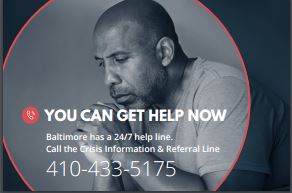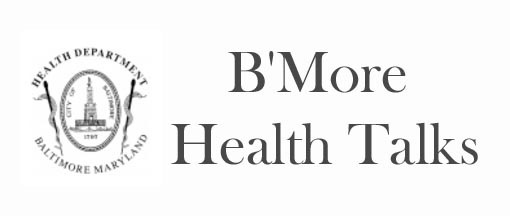Resources
This highlights a few of the many resources available to those wishing to learn more about how you can take action to build a more thriving Baltimore as well as highlighting local resources.Baltimore Resources
2-1-1 Maryland connects you to health and human service resources in your community 24 hours a day, 7 days a week, in over 180 languages. Covering healthcare, mental health and substance abuse, children and families, veterans and military, food, housing and homeless, and more.
Listen to the Virtual Town Halls led by Health Department Commissioner, Lena Wen, in the key focus areas of youth wellness, mental health and substance abuse, and population health/care for the most vulnerable.
Additional Baltimore Crisis Resources
Click here for a listing of Baltimore Crisis Response and Intervention Resources including Suicide Prevention, Baltimore Child Abuse Response System, AIDs Hotline, Domestic Violence Hotline & more.
Online Resources
ACESTooHigh is a website that consolidates information and research about adverse childhood experiences, including developments in epidemiology, neurobiology, and the biomedical and epigenetic consequences of toxic stress.
ACESConnection.com is networking website for people interested in accelerating the global movement toward recognizing the impact of ACEs and trauma in shaping adult physical and emotional health. The network creates a safe space for sharing information and resources.
Books
Author, Bessel van der Kolk, M.D., one of the leaders in the field of emotional trauma, explores the effects of trauma as well as the pathways to recovery. This text covers the neuroscience of trauma as well as some of the emerging body-oriented therapies. The link above, is to a video introduction from one of Dr. van der Kolk’s discussions. The book is available online at Amazon, Barnes & Nobel and many other sites.
The TCC hosted an event with Anthony Biglan, Ph.D., author of the Nurture Effect, in the spring of 2016. Dr. Biglan proposes nurturing as an effective tool in reducing many of society’s ills and advocates for the reduction of conflict and coercion.
Building Resilience in Children and Teens
Kenneth Ginsberg, MD, MsED, FAAP offers strategies to help kids from 18 months to 18 years build seven crucial “Cs” — competence, confidence, connection, character, contribution, coping, and control — so they can bounce back from challenges and excel in life.




